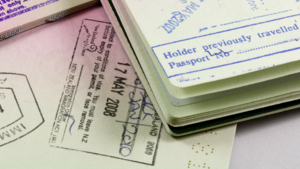Your savings isn’t one of the five official factors impacting your credit score. That distinction goes to payment history, amounts owed, length of credit history, new credit, and credit mix.
While savings may not directly affect your score like the categories above, they play an important role in your finances. It impacts the chances of you taking out a personal loan or withdrawing from a line of credit.
Most People Borrow Money in Times of Crisis
How would you handle an unexpected $400 expense? Let’s say your car needs new brakes, and you rely on this car to get to work each day.
If you’re like most people, you don’t have enough money set aside in savings to cover this surprise auto repair. You would have to take out a loan or put the expense on a line of credit.
Online direct loans make this step easy. If you apply for direct online loans, you’ll work with a single institution. This means a single financial institution will receive, review, approve, and fund your loan online.
Contact with a single financial institution can alleviate many administrative headaches that come with borrowing, as you’ll only owe money to one company. That makes it easier to know what and when you owe, so you don’t miss a payment accidentally.
How Does Borrowing Impact Your Score?
A positive payment history is the biggest factor of your credit score, so paying your bills on time is important. This will keep negative entries off your file, like delinquencies and charge-offs.
However, this factor is followed closely by utilization rate. Utilization rate shows how much you borrow, particularly with a line of credit or credit card. The more you carry on these revolving accounts, the bigger their impact will be on your score.
Maxing out these accounts means you’ve reached your limit and the maximum rate. If you don’t pay off this balance in full, you can see your score dip, although the exact number depends on the rest of your account.
Your Savings: The First Safety Net Before You Borrow
Borrowing might be a necessity when you don’t have savings. But let’s return to the example of your car needing emergency repairs. Now imagine the scenario if you have an emergency fund stocked with three months’ worth of living expenses in it.
With that much savings at your disposal, you can dip into this fund to pay your mechanic without needing to borrow money. Without a personal loan or a balance on your line of credit, you won’t add entries to your file that may affect your score negatively.
How Much Do You Need to Save?
A common rule of thumb says to save three to six months of living expenses. However, some financial advisors recommend saving as much as eight months to a year for greater financial peace of mind.
What this large scale tells you is that savings is personal. How much you need to feel safe depends on your personal financial situation and lifestyle.
Regardless of your goal, sit down with your budget to find out how you can sock away more in savings. This can help you stop adding to the credit you have to worry about as you improve your score.







